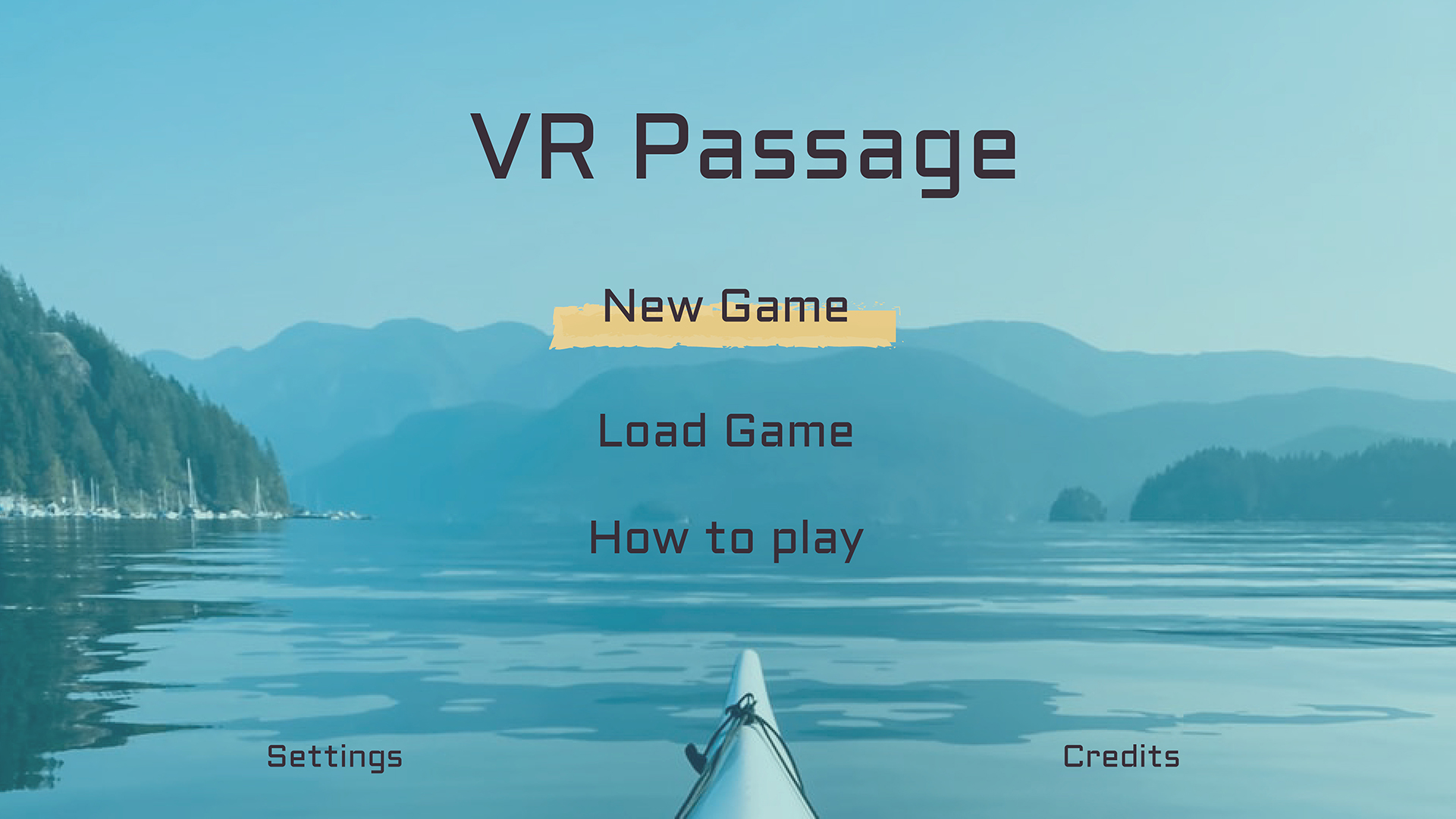VR Passage Canoe Game
VR Passage is a virtual reality canoe game that lets you learn about indigenous traditions around canoes, and paddling techniques.
Category
tools used
Deliverables
Website
Visit website


Overview
Virtual reality canoe game paired with a paddling machine. Players paddle their way through various islands experiencing unique indigenous tales & legends. They learn about the different cultures and traditions around canoes and the paddling techniques as well.
Mandate was to create a digital experience that can help the museum expose the many cultures of canoes, while also telling their stories; help the museum strengthen these connections and expand their audiences to more indigenous people and new Canadians, and enabling a new experience. The aim was to create a solution that encompassed one, two, or three of the Canadian Canoe Museum(CCM)'s values: preservation, connection, and experience.
Project done in collaboration with Ashwin Venkat and Manan Monga
Research
Brief Breakdown and General Research
To gain an understanding of CCM's brief and the general history around canoes we started breaking it down by putting main ideas on stickies to make sense of the information visually.

Precedent Research
We took a look at existing art, design, and visual experiences that we could take inspiration from while taking notes of the designer's intent and user experience. This research included two different indigenous art exhibitions, an immersive virtual museum tour, and a virtual reality documentary.

Some intentions and experiences we learned from these examples that we wanted to take with us during our ideation:
- Observe cultures, their symbols, style, and art expression
- Virtual self guided tours
- Giving viewers awareness of the realism of the experience
- Allow viewers to understand the history, culture, and achievements of Indigenous people.
Ideation
Brainwriting and Dot-voting
We used the brainwriting method paired with 100 ideas method to generate as many ideas as possible fitting with the three brief themes. We then used dot-voting to vote on several ideas that fit best with the brief.

Taking the top voted ideas, they were combined to create a final concept: A VR Journey showing you paddling techniques and telling old indigenous tales / legends with the ability to play in multiplayer or solo.

Mood board
The mood board created shows the overall feelings and aesthetic we wanted to convey through the game. Since a lot of Indigenous tales have a lot to do with nature, we wanted to include all four seasons in the game.

Ecosystem Map
An ecosystem map was created to understand the actors, the technology, and the infrastructure of VR Passage.

Persona
A persona was created to get a sense of a representative user of VR passage.

Journey Map
We created a journey map to track their experience with VR passage, taking notes of the steps within the system and the emotional experience of our persona.

Prototyping
Storytelling
To bring this concept to life, we researched famous indigenous tales and legends surrounding canoes. We found "The Flying Canoe" and decided to use this legend as the story in our prototype. We took apart the story to outline the frames to use for the final storyboard.

We brainstormed ideas for the storyboard frames and added our designed frames into the board as we progressed.
.jpg)
System Elements
The VR passage system elements were described in this graphic to take with us for the final storyboard of the experience.

Results
The final result of this project was a storyboard which acts as the prototype of the experience.
First, the user puts on the VR headset and sits inside the canoe provided.

The audience members can watch the screen through the monitor.

The users experience is being displayed through the VR headset.

An intro screen is shown and allows the user to pick between starting a new game, loading a game, how to play instructions, settings, and game credits. In this scenario, the user picks new game.

A disclaimer is shown giving credit to origins of the legend.

An opening screen is shown displaying the name of the story, the tribe it originated from, the location it's based in, and the season the player is in. The seasons are randomized but the weather gets stormier as the player progresses in the game. This allows the player to play in challenging weather conditions with more experience they gain.

The story starts with two mischievous brothers being banished from their community.

In looking for a new home on a mountain, they spot an old man building what they would later learn is a canoe.

The man spots them and agrees to teach them.

The brothers build their first canoe.

The man hands them a map for their upcoming journey.

Once the canoe is finished, as the old man taught them, they tap on the canoe and sing until the canoe lifts from the ground and starts to fly. They fly the canoe into the water.

The player lands in the water with this canoe and continues their journey to visit different locations and their legends.

Takeaways
- It is important to look at the history of who and what you are designing for. Canoes have a strong history around the world and creating a connection between the past and present can create a powerful experience.
- When designing for VR, it is always nice to design something that cannot be replicated the same way in real life to augment the experience.
Let’s Skyrocket Your Next Project Together
Lorem ipsum dolor sit amet, consectetur adipiscing elit. Turpis scelerisque purus eu quis lacus, nibh pharetra.





